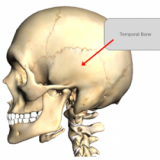Knock down the house of cards.
On August 23, 2013 a judge of the Supreme Court of BC held that when opinion evidence is introduced into court the factual underpinnings upon which the opinion is based must be proven, otherwise the opinion evidence is of no value. In Paller v. Regan, 2013 BCSC 1672, the plaintiff was injured in a 2009 collision. ICBC admitted the defendant was at fault but disputed the collision caused any injuries. In support of their position they relied on an orthopaedic surgeon who never examined the plaintiff but provided an opinion that it was “unlikely” the plaintiff’s injuries were caused by the...
read moreICBC’s expert given “very little weight” for failure to examine.
The failure of a doctor to examine a plaintiff is not, in and of itself, a barrier to the physician from providing opinion evidence to the BC Supreme Court. However, often little weight is attached to a doctor’s opinion in such circumstances. This was demonstrated in Rizzotti v. Doe, 2012 BCSC 1330, the plaintiff suffered psychological injuries in a serious collision in which the offending motorist died. At trial the plaintiff tendered expert evidence addressing the extent of her injuries. The defendant tendered a report from a psychiatrist, Dr. Levin, who disagreed with the plaintiff’s...
read moreThe significant role of expert evidence.
When presenting a claim at trial dealing with future loss it is vital to have appropriate expert evidence to justify sought damages. Failure to do so can result in a dismissal of the sought damages even if they are unopposed. Reasons for judgement released May 6, 2011 highlight the importance of medico-legal evidence in personal injury trials. In Moore v. Briggs the plaintiff suffered a fractured skull (fractured left temporal bone) and a brain injury in a 2003 assault. The plaintiff sued those he claimed were responsible for the assault. One of the defendant’s did not respond to the...
read more






